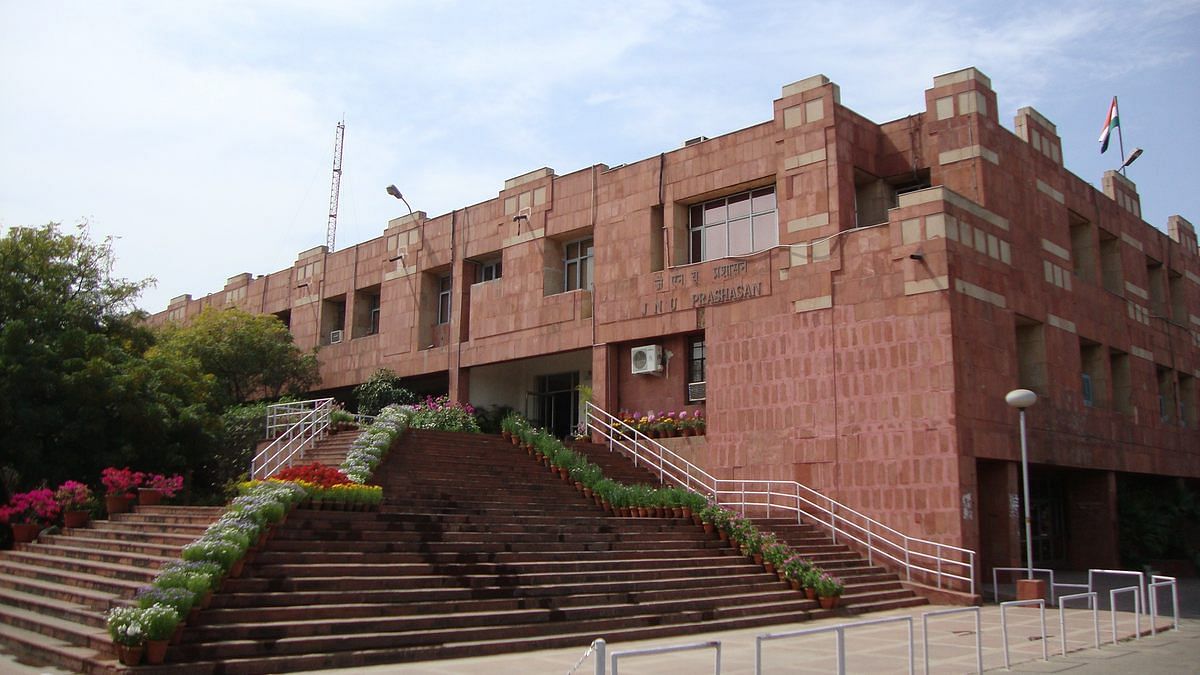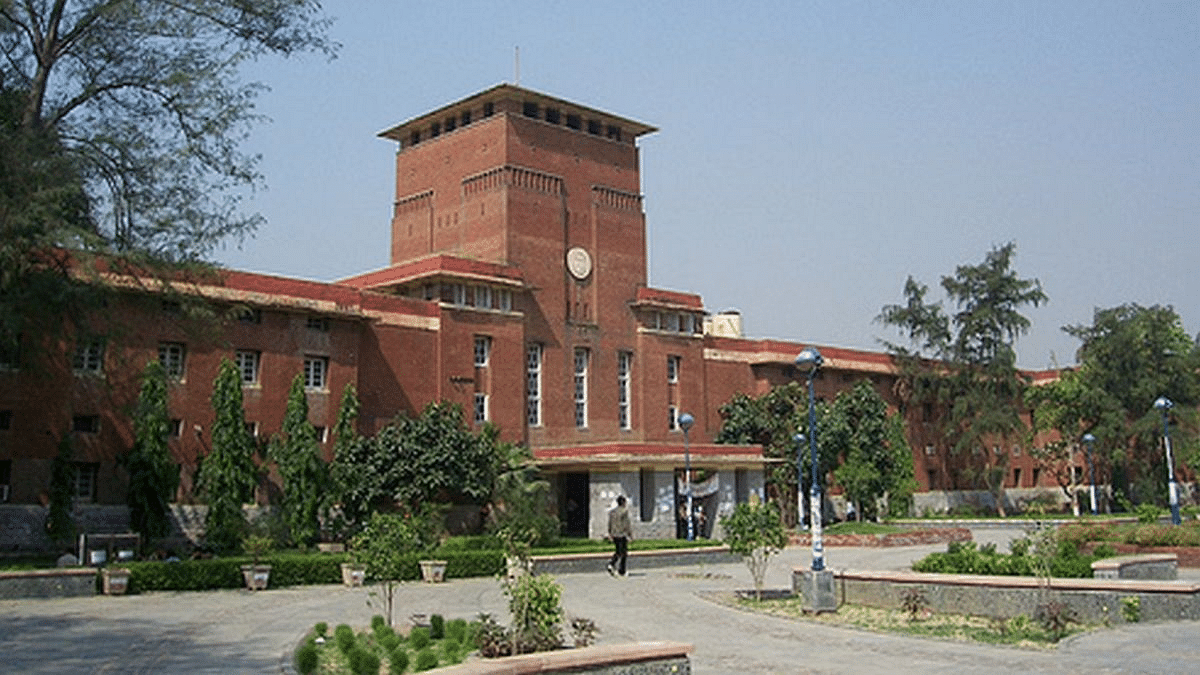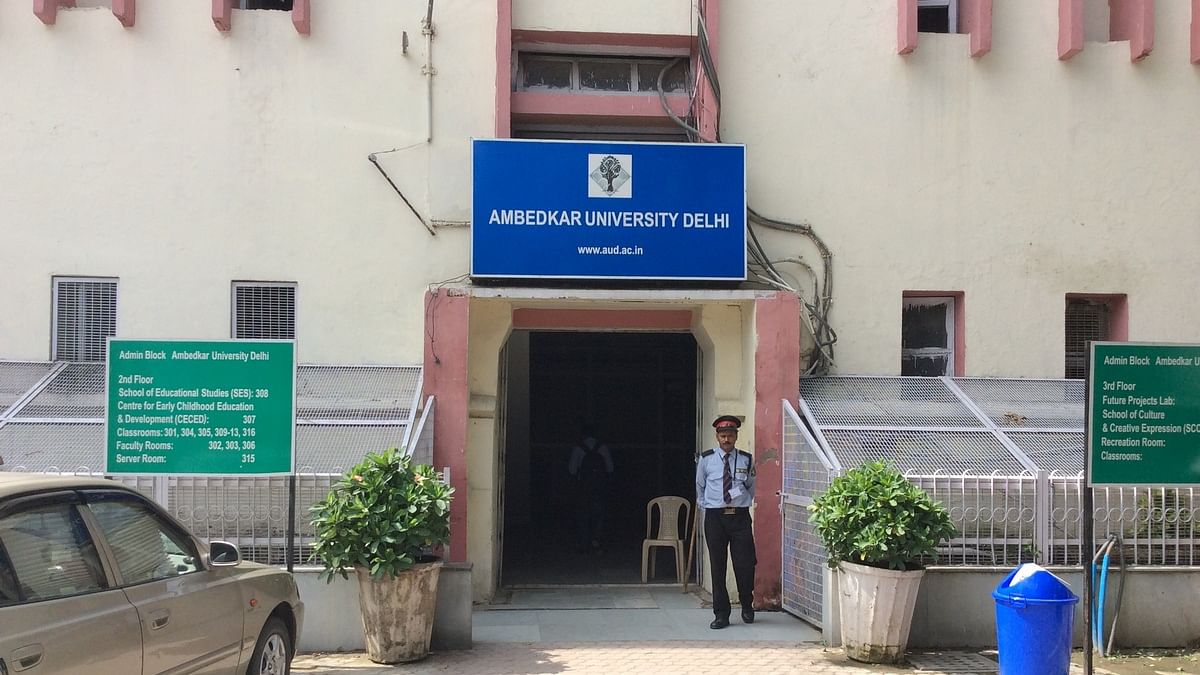New Delhi: Recently, a professor at Delhi University’s Ramjas College was forced to negotiate alien territory called the Delhi High Court. When pitted against the comfort of the classroom, the court and its maze of black coats inspired only one emotion—fear.
“We’re academicians. I’m not used to this. There was an inherent fear,” he said. He dominated the classroom but the court left him vulnerable. And yet that’s where more and more scholars are headed in Delhi. “Whether I was in class or in the staffroom, I was constantly thinking about the case.”
Litigation is arduous. But so is dealing with university administrators. And there’s a steady flow of academics across Delhi’s leading universities who’d rather languish in courtrooms than outside their vice chancellor’s office. In fact, doing the rounds of court might even be quicker. Whether it’s Jawaharlal Nehru University (JNU), Delhi University (DU), or Ambedkar University Delhi (AUD)—a dizzying number of faculty members have made a rather dramatic switch—from classroom to court.

“The court is being forced to do the work of the university administration,” lawyer Abhik Chimni told ThePrint. “There is clear institutional malice, so you’ll have to go to court to get the obvious stated.”
Chimni represents over a hundred JNU, DU, and AUD professors in court.
JNU has lost its spirit
Instead of going to JNU’s SC/ST cell, Pradeep Shinde, an assistant professor at the Centre for Informal Sector and Labour Studies, went to the high court. Back in 2020, he and a colleague applied for two vacant posts—only to find that the position, reserved for scheduled caste applicants, had been turned into one for scheduled tribe candidates, and another reserved position had been made open to all.
The court intervened and the university was told to “revisit” their advertisement. The second post was then put under the EWS category.
“The SC/ST cell was of no help. The VC wielded a great deal of influence, so internal mechanisms didn’t work,” said Shinde. “The court is the only institution. What do you do? We have to fight. At least a judge speaks to you and listens to you.”
In the Indian university system, reserved posts are advertised on the basis of a roster. For instance, every sixth job is in the SC category and every 13th, in the ST category. According to Shinde, they had ample reason to believe that “the roster had been tampered with.” At least 12 professors from reserved categories had been denied promotions due to this alleged tampering.
But despite the university having its own systems and structures of governance—they preferred to trudge through the corridors of court.
Such is the arrogance of power. Making things difficult has become the established norm. Nothing happens smoothly and nothing is routine.
—Surajit Mazoomdar, economics professor at JNU
Academics aren’t just moving to court for issues of harassment or to navigate changes in pension schemes. Sometimes, from the realm of the exalted, the court has been pushed down to where mere mortals reside—having to deal with relatively minor issues such as faculty leave.
“It’s impacted all of us. JNU’s lost its spirit,” said a former PhD scholar at the School of Arts and Aesthetics, who submitted a thesis this year. But she maintained that they always received requisite support from their professors, regardless of their circumstances. “The faculty is always ready to listen and work around their schedules.”
Udaya Kumar, an English professor at JNU who had been teaching there for about five years, filed a petition because the university wasn’t granting him leave. He was applying for extraordinary leave (EOL)—available to those working in government institutions—in order to attend a fellowship at a university in France.
“I must express here that the court is a little amazed at the resistance of the university to grant EOL to the petitioner for his fellowship. The petitioner is not going on leave for any self-service or self-employment,” reads the court order that followed. “In my view, the rejection of the application for grant of EOL is completely arbitrary and against the provisions of the ordinances of the university.”
Multiple faculty members alleged that the purpose behind these seemingly uneventful cases stemmed from a want to harass and intimidate faculty members—part of a larger assault and seismic churn taking place across higher education institutions.
“Such is the arrogance of power. Making things difficult has become the established norm. Nothing happens smoothly and nothing is routine,” said Surajit Mazoomdar, a professor at the Centre for Economic Studies and Planning at the School of Social Sciences. He was also previously secretary of the Jawaharlal Nehru University Teachers Association (JNUTA) and a member of the executive council.
“Even in terms of the number of cases, and the number of adverse judgements [against the university], if there were statisticians counting this kind of thing, JNU would be holding national records.”
Also read: Govt schoolteachers are drowning. Classwork, homework, more work
Litigation as harassment
In 2018, 48 JNU professors held a one-day march in protest against a set of guidelines—the Central Civil Services (Conduct) Rules, 1964. While JNU is a public institution and faculty members receive their salaries from the government, a university space commands a certain autonomy. According to the rules, teachers don’t come under this fold of government servants.
Yet, the clampdown by the administration said otherwise—and the disciplinary proceedings enacted against them were in line with the Central Civil Services (CCS) rules. They were slapped with charges of misconduct and threatened with salary cuts and penalties.
The chargesheet against them was stayed by the Delhi High Court. However, it was still applied to deny retired faculty members their pensions, and others their promotion.
It’s mentally draining, and that is not something that can be quantified. Every second person in the university is asking me for updates about my case.
—AUD professor
“CCS rules were invoked and we got a stay. Professors started retiring. They [JNU administration] wouldn’t issue their pensions. We had to go separately to get their pensions,” said Chimni. “Courts are burdened and cases take time. Delay is therefore used as a tool of institutional harassment against citizens. They are fighting cases they know they might lose.”
For most academics across universities, the petitions they’ve filed against their university establishments are their first stints in court. There is a hefty mental, emotional, and financial cost that must be paid.
“It’s mentally draining, and that is not something that can be quantified. Every second person in the university is asking me for updates about my case,” said an assistant professor at Ambedkar University, who filed their petition last year. “I started therapy and I’m on antidepressants. I was feeling so low.”
This, even as the professor has the full support of their faculty association, which is also paying their legal fees. But that’s because their petition is based on allegations of caste and gender discrimination. In instances of demotion and the non-payment of increments, the fees are borne by individual professors.
Nandita Narain, a now-retired professor from St Stephen’s College, who also headed the Delhi University Teachers’ Association (DUTA) was convinced that both her college and the university wanted her out.
“I was the president of DUTA and it was a case of direct targeting. They built up a whole case against me. An inquiry was initiated and a fact-finding committee was formed,” she said. The inquiry came into play after she wrote a newspaper article critical of St Stephens.

Narain filed a writ petition challenging the instituting of a fact-finding committee against her. According to her, “many” judges recused themselves due to the sensitivity of the matter, but ultimately she received a stay.
“It was just a matter of luck that I got a judge who was willing to hear my case. Eventually, the VC changed and the university lost the report,” she said. Nearly a decade later, her case is in a repository of lost relevance. Nothing has come of it. “We could fight back then,” she added.
Also read: Govt jobs are changing. PSU bank staff live in pressure cooker, 9-5 replaced by 24×7
Nature of dispute
Delhi University is no stranger to litigation. But for JNU and AUD, this is uncharted territory that is becoming more familiar by the year. As of 2024, the Delhi High Court website has 48 cases listed in which JNU is the respondent. In 2015, one year before the conflict between the establishment and staff members hit its crescendo, it was 11. At least 23 professors have filed cases against AUD, according to data shared by the faculty association.
“DU has always seen a huge number of litigation cases. But JNU and AUD haven’t. There needs to have been a determined change in policy for such a qualitative shift,” said Chimni. Meanwhile, even in 2013, Narain recalled there being 25 cases fought simultaneously at St Stephens alone.
A major bone of contention and litigation generator is the appointment of deans and chairpersons. Previously, the senior-most professor—dictated as per levels of the academic ladder—would become dean for a period of two years. Similarly, the chairperson of a centre would also be installed on a rotational basis.
Since 2022, according to a letter by the JNUTA, a copy of which has been accessed by ThePrint, 14 appointments have taken place. Of these, three deans have been re-appointed to the same position.
In 2020, Milap Chand Sharma, a professor at JNU’s Centre for the Study of Regional Development, filed a writ petition. Milap Punia, who is “far junior” to him and another professor, Atul Sood, was declared chairperson—an obvious breach of protocol. In fact, Punia was fifth in line to become chair.
Sood was then the president of JNUTA and Sharma had been vocal in expressing his displeasure against the administration. The writ petition stated that the university typically instituted only those who were unlikely to question its “autocratic and illegal decision making” or were in “professionally vulnerable circumstances”.
Going to court, as is usually the case, was Sharma’s final recourse. Back in 2013, another junior professor had been offered the chairmanship of his centre. Sharma went to the VC’s office and was informed that it had been a mistake on the part of the administration. Rectification was swift and the senior-most professor was brought into the fold.
“Now, no one listens. It’s more autocratic than ever,” said Sharma, referring to the last two dispensations. In the School of Social Sciences itself, nine centres have gone to court over this matter. In Sharma’s case, the court is yet to arrive at a decision. “We just move from date to date,” he said.
A lot of people are in court for their pensions. The universities are just not giving them. And when they are, they’re asking for a huge amount of recovery.
—Vinita Chandra, English professor at DU
In the case of JNU’s charge-sheeted professors, two of them—one from the School of Arts and Aesthetics and another from the history department—died before they received their pensions.
When it comes to disbursing pensions, universities appear to have grown close-fisted, almost unwilling to hand them over.
“A lot of people are in court for their pensions. The universities are just not giving them. And when they are, they’re asking for a huge amount of recovery,” said Vinita Chandra, an associate professor of English at Ramjas College. She mentioned two cases: a professor who had taken voluntary retirement was charged a recovery sum of Rs 15 lakh and the other, Rs 10 lakh. According to the university rules, not more than Rs 2 lakh can be charged as recovery.
Also read: Working at India Post means being a multitasker—Chase new accounts, sell Gangajal, flags
Collapse of internal mechanisms
In a meeting of the JNU executive council, which continues to be held online nearly three years after the pandemic ebbed, 39 items were cleared in 13 minutes. All this, because the mics of most members were not turned on.
“The conduct of the meeting is such that there is no scope for any application of the mind on issues of immense significance for teaching and learning in the universities,” said Atul Sood, a professor at the Centre for the Study of Regional Development and former JNUTA president. “We don’t see any university body functioning.”

The JNU, DU, and AUD professors’ mass migration toward the courts is also a product of a lack of functional in-house redressal mechanisms. A professor pointed out that when she went to file a complaint with the university’s Internal Complaints Committee (ICC), she found it to be inoperational, and not in accordance with UGC guidelines. She is now fighting her case in the Delhi High Court.
“I made a complaint with the ICC and sent them three reminders. Not a single inquiry was initiated,” she said. “Only then I went to the court. Internal processes are non-existent.”
JNU’s executive council is supposed to hold four meetings a year, with a 14-day notice period. According to the JNUTA, only four meetings have been held since February 2022. At the same time, nine emergency meetings have been declared—wherein the agenda doesn’t need to be disclosed.
“It’s a collapse. And it pushes the burden on individual teachers to file cases,” said Moushumi Basu, president of the JNUTA. “Now the entire infrastructure of the academic and executive council is being redone. Somebody is controlling the mute button.”
No faculty association files cases, even if they do express solidarity and provide financial support.
While his colleagues helped, Shine knew that he had to fight his battle alone, at the end of the day. “Colleagues contribute, but what can you expect them to do beyond a point?”
Academics have to seriously consider whether going through the rigamarole is worth it. “You don’t always want to antagonise the administration. I’m not sure if I’m going to get another job,” said the Ambedkar University professor quoted above.
She recalled the registrar once telling a staff member: “If you want justice, why don’t you just go to court?”
(Edited by Prasanna Bachchhav)







The Print, of late, has become the self-appointed spokesman for disgruntled Left-liberal academics and activists.
Of late, The Print has become the mouthpiece of disgruntled Left-liberal academics and activists. These people have had a very cosy life all along- enjoying the perks of a well paid govt job with occasional travel to the West for conferences and seminars. The best part of their life was getting a fellowship or being a visiting faculty at Western universities. This self-serving Left-liberal cabal got ample opportunity to socialize with their Western counterparts, often at state expense. All the while, they continued with their propaganda and brainwashed the youth into joining the “movement”.
Now that the Congress is out of power, they are missing out on all the fun. Foreign trips are rare and fellowships/scholarships are even more scarce.